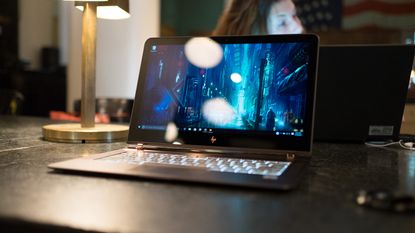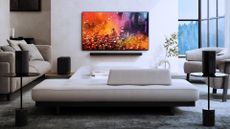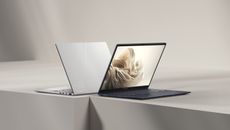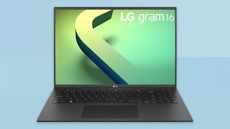'Tis the season to be... buying laptops, if there's someone in your family who wants one. Or maybe you're treating yourself to a brand new machine this Christmastime? Whatever the case, gazing out across the mass of models currently on offer can be a daunting prospect.
Don't panic, because we're here to guide you through the ins and outs of choosing the perfect laptop, no matter who you're shopping for, what your budget is, and how well you know your Intel chips from your AMD ones. Read on and make a more informed choice.
Screen size vs portability
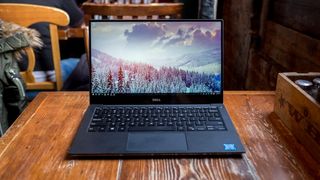
Every laptop is a compromise between a number of factors, two of those factors being screen size and portability. Bigger laptops give you more screen room for your Excel spreadsheets or Netflix binges, but they're also heavier and harder to carry around. Look for the screen size, which is usually measured diagonally in inches and should appear prominently on the specs.
So, you need to decide where you want the balance to lie - do you want something ultralight or something substantial? Most people will usually prefer one over the other, depending on whether they're planning to use their machine for full-scale gaming or just for catching up on emails on the train, for example.
To get the best of both worlds, you might want to consider something like the Surface Book or a Windows 2-in-1 that doubles up as both a tablet and a laptop - lightweight when you need it to be, but also capable at the same time. Typically, you're going to be paying more for a bigger computer, so that's something else to consider for your purchase.
Power vs price
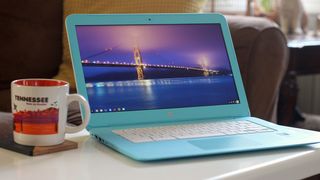
Then there's power vs price - if you want to know how nippy your shortlisted laptop is without diving deep into the components list, look at what it's selling for. We have no problem with cheaper computers but something more expensive will handle demanding tasks better and probably last you longer as well.
That said, you don't want to waste money on top-end specs you're never going to need. As with the screen size and portability issue, a lot of it boils down to how you (or the lucky recipient of the laptop) are going to use it: gaming, video editing, and image editing are three of the most demanding tasks you can put computers through, so if they have no interest for you, you can save money on something more mid-range.
You can spend hours on the web researching CPU and GPU benchmarks, and by all means do so if you want, but looking at prices is a good shortcut. It's maybe a good idea to get a shortlist of two or three laptops, and then compare processors and other specs in more depth - check speed, of course, but also the year when these components first came out, as that will affect their performance and efficiency (the draw on battery life).
Windows vs macOS vs Chrome OS

As well as making decisions about the hardware, you've also got a pretty major software decision to make too: Windows, macOS or Chrome OS? The easy answer is whatever you or the person who is going to be using the laptop are most comfortable with, but it's worth quickly running down the main differences.
Chromebooks are basically just a browser on a laptop. That means you're restricted to web apps, and you really need a Wi-Fi connection most of the time (though some apps run offline); it also means they start up fast, they're cheap, and they don't need extra software like antivirus programs. Perfect for people with lightweight computing needs.
Windows 10 gives you access to all the power and performance of desktop apps, as well as a usable tablet interface - whereas macOS is limited to laptops and desktops, Windows 10 is appearing on an increasing number of 2-in-1 and hybrid devices. It's not necessarily better than macOS, it's just different - if the owner of the new laptop is comfortable with Windows, there's really no reason to switch.
Finally, Apple's desktop operating system is polished, secure, and stable. You could make a case for it being less bloated and more intuitive than Microsoft's offering, and it comes with a bigger selection of free software, but it's also very Apple-centric - it doesn't play nicely with non-Apple gear (like Chromecasts or Android phones), and of course you only have the choice of laptops and laptop specs that Apple decides to give you.
Making your choice
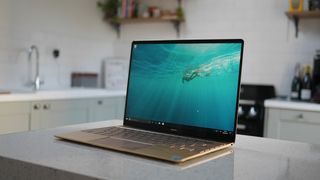
What's the laptop going to be used for? How much do you want to spend? Can it run all the applications it needs to? You've got a lot of questions to work through before buying, but our round-ups of the best Windows laptops, the best MacBook deals, and the best Chromebooks should make your choice a little bit easier.
Answer a few of the questions we've raised above, decide on your budget, and you should have a much narrower choice of potential laptops to pick from. In the final reckoning check out reviews on the web - like our take on the Medion Erazer X6603 or the Huawei Matebook X - and you should have a decent idea of what fits the bill best.
If you are buying for someone else, you might even want to ask their opinion on the options available, though you'll lose the element of surprise - extra factors like the number of expansion ports, whether or not it has a touchscreen for stylus support, and even what colours in comes in can all help you make your final decision.
